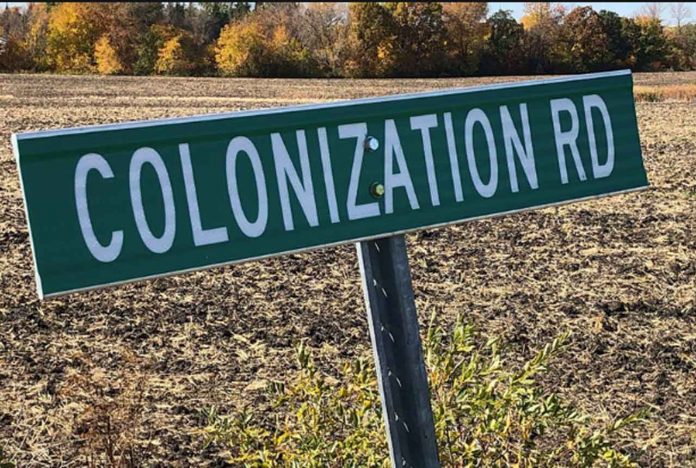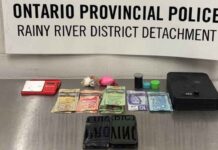FORT FRANCES – A community survey administered in Fort Frances has once again signalled broad public support for the municipality to make one length of Colonization Road a symbol of reconciliation.
At the March 22 meeting of Council, Fort Frances City Councillor Douglas Judson moved to have Council commit to giving one of the two Colonization Roads a name that would honour local Indigenous culture or heritage. No member of Council would support the motion.
On May 3, 2021, a Council committee met to shortlist over 70 suggested names it received from the public into two lists – one for Colonization Road East and one for Colonization Road West. Council will choose one of the names from each of the lists at its meeting on Monday, May 10.
Councillor Douglas W. Judson says, “Like many citizens, I am disappointed by the lack of leadership and commitment to reconciliation that this file has seen so far. Instead of leading a discussion on reconciliation, Council adopted a process that has given life to an inappropriate and ugly ‘both sides’ discussion. This has emboldened racism and bigotry in the community, which was predictable from the outset when Council refused to make its position clear in November. It is critically important to our social fabric and municipal reputation that Council close the door on this and move forward by making a decision that is aligned with our commitment to local Indigenous people. The public appetite for this direction has been loud and clear all along. It will be a sad day if Council won’t listen.”
The shortlist for Colonization Road East includes two Anishinaabemowin names: Agamiing, which means “at the shore”, and Nibi, which means “water”, which is of cultural significance to local Indigenous communities.
The other options for Colonization Road East are Sunrise, Harmony, and Shoreline. The Colonization Road West shortlist consists of Sunset, Heritage, Spirit, and Moonlight.
350 participants took part in the survey, of which 30% self-identified as Indigenous.
The results for Colonization Road East indicate that:
– Agamiing was the first choice of 41% of participants, with 37% selecting Nibi as their second choice. Together, the two Indigenous names were the first choice of 58% of participants and the second choice of 54% of participants.
– Sunrise was the first choice of just 27% of participants, and trailed Agamiing and Nibi in the second choice selections. Support for Harmony and Shoreline trailed these figures.
– Support for the two Anishinaabe names is even more pronounced among the Indigenous participants in the survey. 76% of those who self-identified as Indigenous selected Agamiing or Nibi as their first choice, and 63% selected one of those names as their second choice. Support for the English names trailed significantly among Indigenous participants.
The preferred name for Colonization Road West, by a wide margin, is Sunset. This is a nod to local tourism marketing.
The unofficial survey was administered by Councillor Douglas W. Judson as a constituent engagement initiative. The survey was specifically targeted to Fort Frances Facebook users. It reached a representative distribution of all age groups in the community, over a four-day period ending on May 8, 2021. The survey results are not binding on Council’s decision. Measures were taken to authenticate the participants. The results were presented to Council as a memo, which has also published online.
The results for Colonization Road East are the most recent indication of widespread community support in Fort Frances for Council to select a road name which honours Indigenous heritage, as part of the municipality’s commitment to reconciliation. For instance:
– An earlier survey administered by Councillor Judson on the over 70 road names submitted by the public demonstrated that 7 of the ‘top 10’ options were of Indigenous significance or language.
– During Council’s initial consultation on whether to rename Colonization Road, it received written input from over 240 people. Of those, only 10 were opposed and over 180 asked Council to install a name that reflects local Indigenous culture or language.







